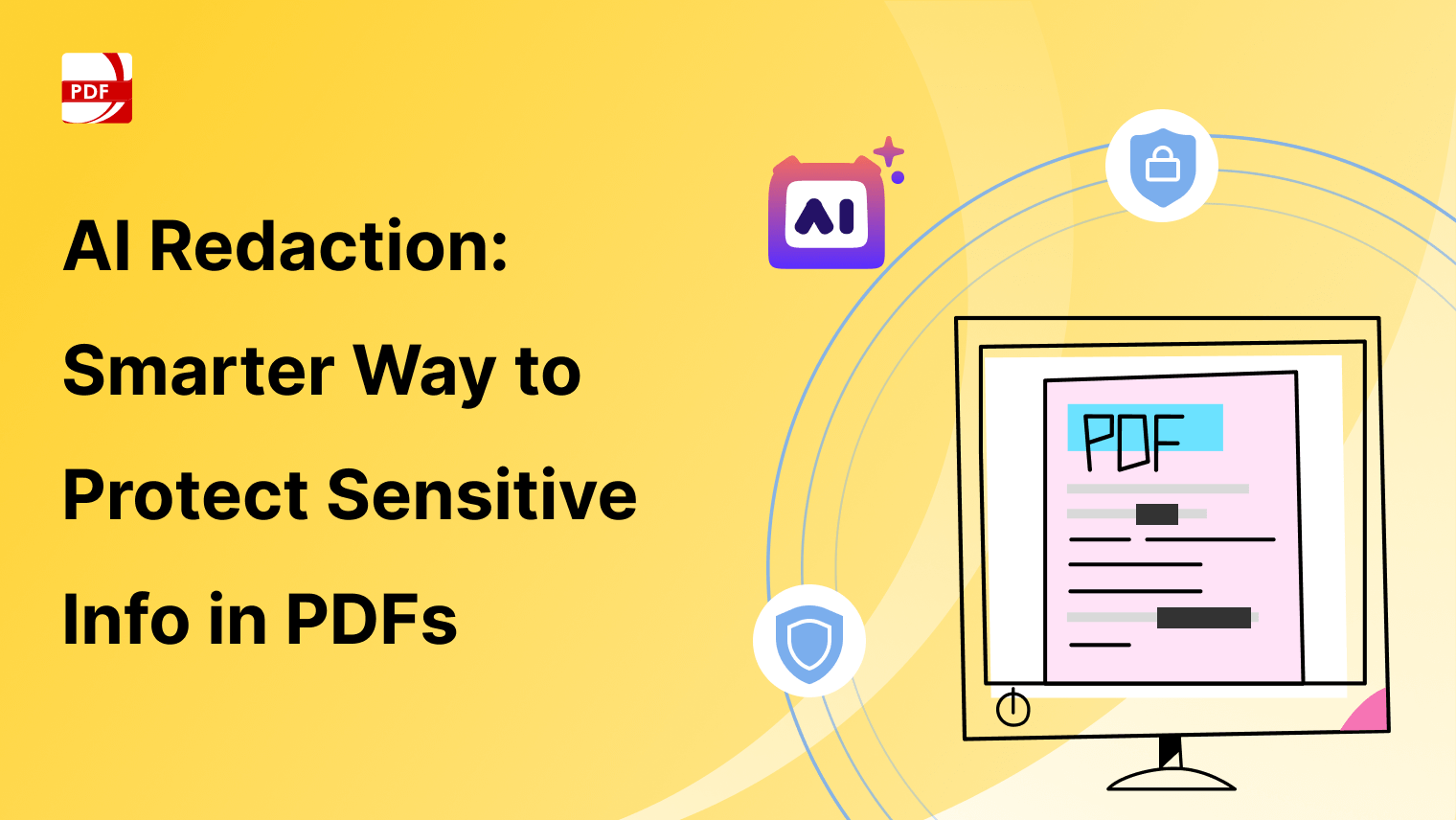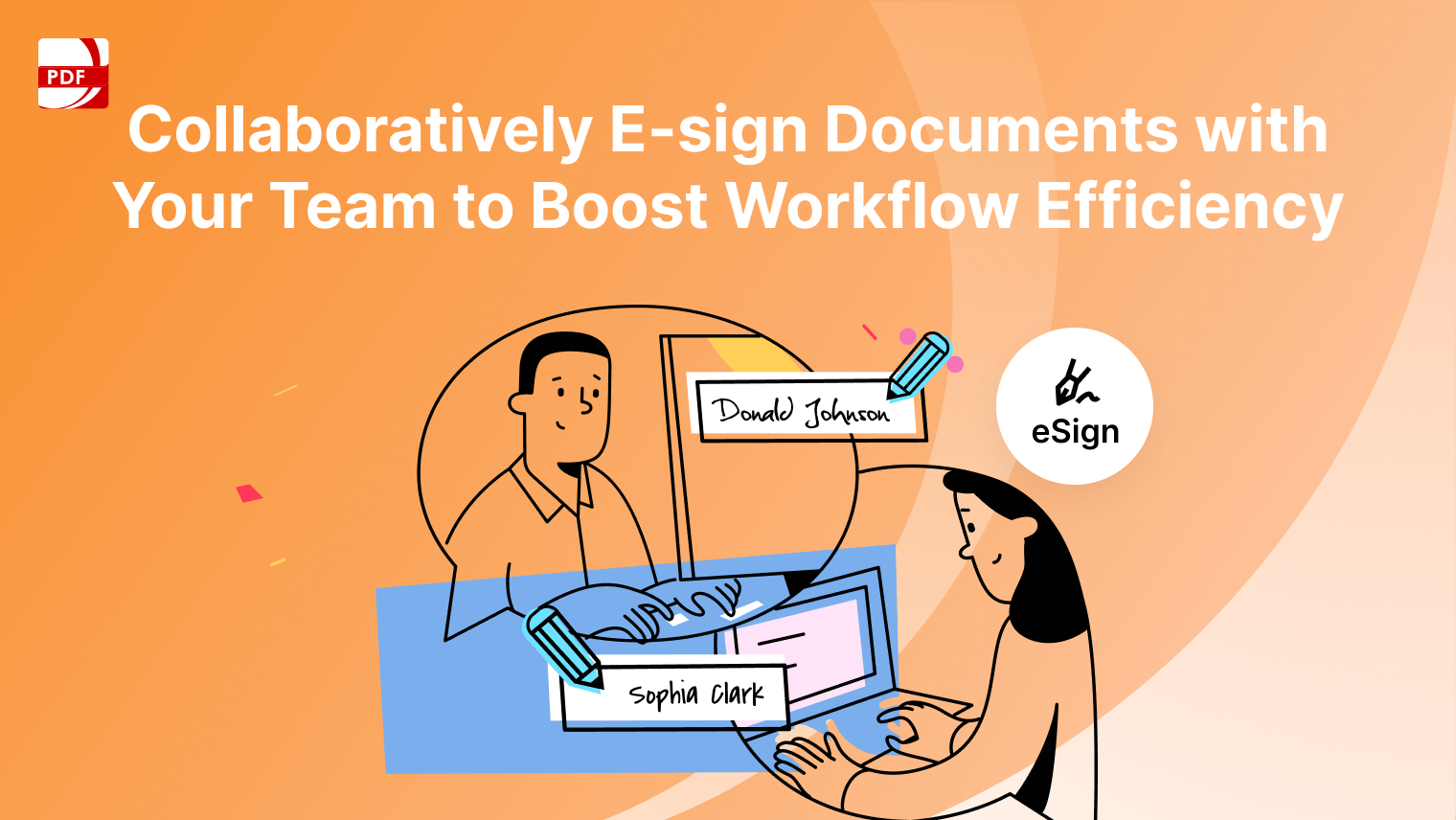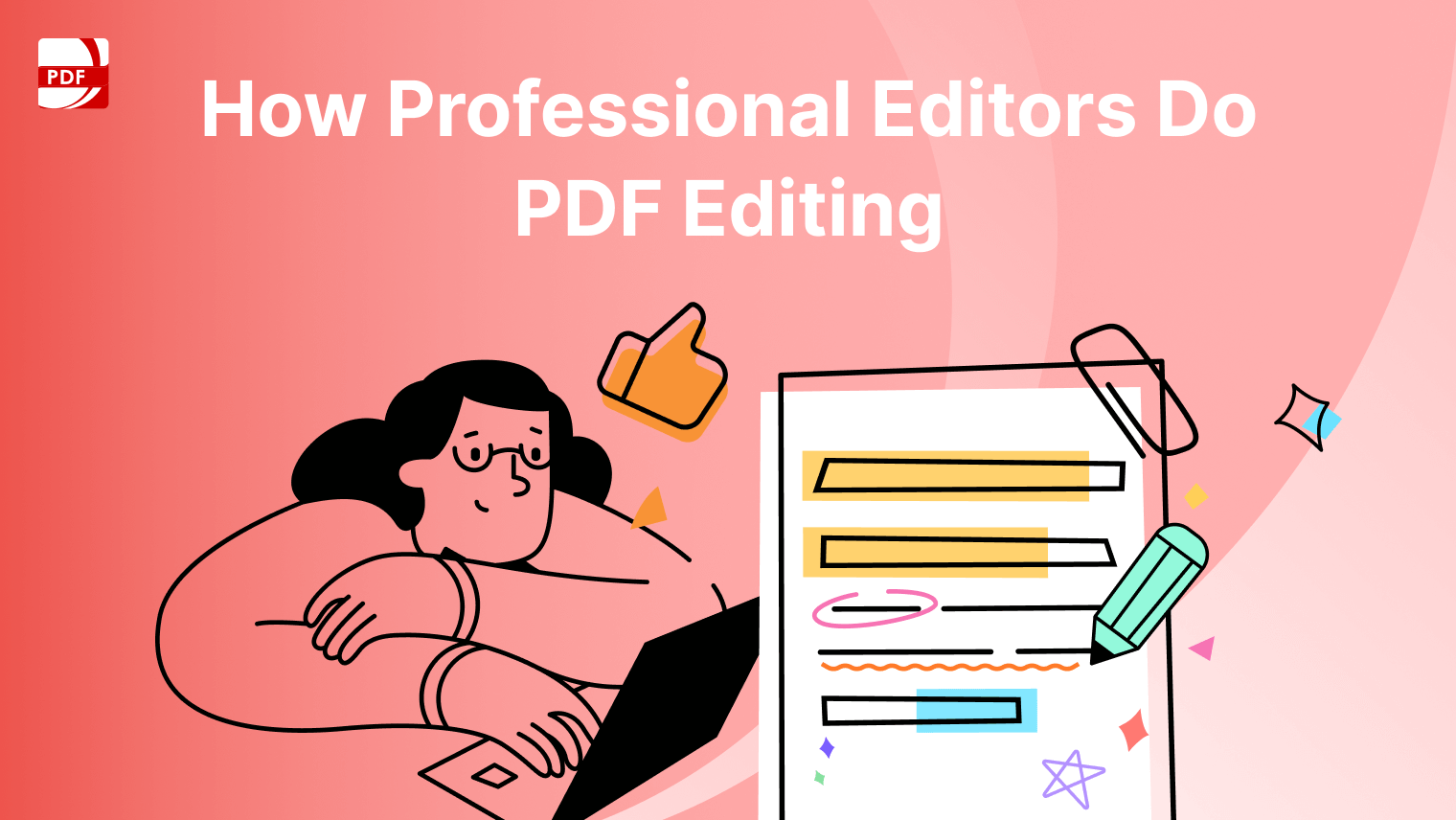This post provides a concise yet comprehensive guide on ensuring privacy and security in healthcare document sharing.
We discuss HIPAA compliance, its impact on cloud storage, and best practices for using HIPAA-compliant file sharing services, along with an overview of PDF Reader Pro's versatile "Health PDF Templates."
Perfect for healthcare professionals aiming to balance compliance with efficiency.
The Importance of Trust, Privacy, and Security in Healthcare
In the Healthcare Industry, trust, privacy, and security are not merely operational elements; they are the bedrock of patient care and medical practice.
These principles, deeply embedded within the system, go beyond routine workflow to ensure that healthcare providers maintain a reputation of reliability and professionalism.
The well-being of patients is of utmost importance, and this is reflected in the continuous efforts of hospitals and medical practitioners to build and maintain trust.
Embracing Digital Solutions: The Role of Google Drive and Mobile Devices
The integration of digital solutions like Google Drive and the use of mobile devices in healthcare has revolutionized the management of sensitive files and patient information.
These technologies have made it easier for healthcare providers to access and share information securely.
However, they also necessitate stringent security measures to prevent unauthorized access and ensure the privacy of personal health information.

Implementing Robust Security Measures
To safeguard sensitive data, healthcare organizations adopt various security measures. These include:
-
Audit Trails and User Activity Monitoring: Keeping track of user activities through audit trails is essential. It helps in monitoring access to sensitive files and ensures that all interactions with patient data are traceable and accountable.
-
Access Controls and Authentication Protocols: Implementing access controls and authentication methods, such as multi-factor and two-factor authentication, is crucial. These methods ensure that only authorized personnel have access to sensitive information, significantly reducing the risk of unauthorized access.
-
Physical and Technical Safeguards: Physical safeguards involve securing the physical access to devices and data storage areas, while technical safeguards pertain to protecting electronic health information systems from potential cyber threats.
-
Secure File Sharing Practices: Adopting secure file-sharing practices is vital for the protection of sensitive health information. This involves using secure platforms and ensuring that files are shared in a manner that prevents unauthorized access.
-
Administrative Safeguards: These are policies and procedures designed to clearly define how the healthcare organization manages the conduct of its employees in relation to the protection of electronic health information.
Building a Culture of Security and Privacy
For healthcare providers, establishing a culture of security and privacy is essential.
It involves training staff on the importance of security measures, the proper use of service providers for handling patient data, and understanding the role of various safeguards in maintaining patient trust.
By setting expiration dates on access and continuously updating security protocols, healthcare organizations demonstrate their commitment to protecting personal health information.
In summary, the importance of trust, privacy, and security in healthcare cannot be overstated.
As healthcare organizations continue to integrate advanced technologies like Google Drive and mobile devices, the need for robust security measures, including technical, physical, and administrative safeguards, becomes increasingly vital.
This comprehensive approach to security helps in maintaining the trust that patients place in their healthcare providers.

The Significance of HIPAA Compliance in Cloud Storage
With the enactment of the Health Information Technology for Economic and Clinical Health (HITECH) Act in 2009, HIPAA compliance standards were extended to include any service provider with access to personal health information, encompassing cloud-based file storage services.
Read our guide for implementing HIPAA-compliant software on AWS! https://t.co/pVOe8syQBV #HIPAACompliance #AWSServices #HealthcareSecurity #Blog pic.twitter.com/6Twhn7xT5B
— Mindbowser Inc. (@Mindbowser) December 5, 2023
Non-compliance with HIPAA can result in severe penalties under HITECH.
This legislation established a tiered penalty system, scaling penalties based on the nature of the violation:
- Unintentional Violations: Fines range from $100 to $50,000 per incident, with a yearly cap of $1.5 million for repeated violations.
- Violations Due to Reasonable Cause: Penalties start at $1,000 per violation, subject to the same annual maximum as unintentional violations.
- Willful Neglect Violations (Corrected Timely): Minimum fines of $10,000 to a maximum of $50,000 per violation, with an annual ceiling of $1.5 million for similar violations.
- Willful Neglect Violations (Not Corrected Timely): Fines begin at $50,000, with the same yearly maximum per violation.
Furthermore, penalties may escalate, including imprisonment, if criminal activities are involved. These penalties apply to the covered entity, not the service provider, underscoring the importance of choosing a HIPAA-compliant provider.
Choosing a HIPAA-Compliant Storage Service
While HIPAA/HITECH support is crucial, it's not the sole requirement for a compliant file-sharing solution in the healthcare industry.
Key considerations include:
-
Audit Capabilities: Administrators must be able to conduct audits to ensure ongoing compliance, particularly when mobile devices are used. Opt for a platform with comprehensive administrative controls, like detailed reports and audit trails.
-
Business Associate Agreements (BAA): This HIPAA requirement outlines the cloud storage company's duties in protecting health information.
-
Encryption Methods: Effective encryption is necessary to shield data from unauthorized access.
Additional Essential Features
-
Multi-Factor Authentication: This adds an extra layer of security, ensuring secure access to medical files and protecting sensitive data.
-
Compliant File Sharing Solutions: These solutions should provide secure file sharing services, including instant and offline access to files, especially for healthcare data breaches and patient records.
-
Single Platform Access: A single platform should offer integrated solutions for file sharing, user authentication, and access to company and business files, maintaining a secure environment for patient care.
-
Mobile App Integration: Providing healthcare professionals with secure and convenient access to files through mobile apps is essential for modern healthcare operations.
Exploring Health PDF Templates
PDF Reader Pro offers a specialized suite of "Health PDF Templates," designed to cater to the unique needs of the healthcare industry.
These templates are a significant asset for healthcare professionals and organizations, streamlining documentation processes while ensuring compliance and efficiency.
Explore our Health Care Proxy Form PDF Template to ensure your medical decisions are clearly documented.
Key Features of Health PDF Templates
-
Customization and Ease of Use: The Health PDF Templates are highly customizable, allowing medical staff to tailor them to specific requirements. Their user-friendly design ensures that even those with minimal technical skills can easily modify and use them.
-
Variety of Templates: The collection includes various types of templates, such as patient intake forms, consent forms, medical history records, and treatment plans. This variety ensures that healthcare providers have access to a template for virtually every need.
-
HIPAA Compliance: Understanding the importance of HIPAA compliance in the healthcare sector, these templates are designed with privacy and security in mind. When used correctly, they help in maintaining the confidentiality of patient information.
Selecting a cloud-based file storage service that aligns with national standards and compliance requirements is critical.
This ensures compliance efforts and the protection and privacy of patient records within a secure and efficient file-sharing mechanism.
Explore our Medical School Letter of Recommendation PDF Template to enhance your application process.
HIPAA Compliance and PDFs: A Perfect Match
HIPAA (Health Insurance Portability and Accountability Act) was enacted to protect patient medical records' privacy.
PDF Reader Pro stands out in the online form building sector for its compliance with HIPAA regulations. This tool enables healthcare professionals to create fillable PDF forms and generate PDF documents for attachments in Autoresponders.
With PDF Reader Pro, you can access a diverse range of PDF templates to inspire your next design project, simplifying the document creation process.
Transforming Healthcare Communication with PDF Templates
PDF templates offered by PDF Reader Pro can be utilized in various scenarios within healthcare settings. For instance, electronic brochures in PDF format are a modern alternative to traditional paper-based flyers, providing an efficient way to disseminate information about health services.
These can be distributed electronically to potential patients following their online registration. Additionally, elegantly designed, fillable PDF forms are available for download and printing, catering to the needs of hospital outpatient departments.
Explore our recommendations for using PDF Reader Pro's Secure Document Signing feature to enhance your document security.
How to Achieve HIPAA Compliant Document Sharing: Best Practices
Achieving HIPAA compliance in document sharing is critical for healthcare providers and entities handling protected health information (PHI). Implementing best practices ensures not only compliance but also the security and privacy of sensitive data.
Here are key strategies for HIPAA compliant document sharing:
1. Utilize a HIPAA-Compliant File Sharing Service
Selecting a file sharing service that explicitly complies with HIPAA regulations is crucial. This service should provide secure methods to share sensitive data files, ensuring that PHI is protected during transmission and storage. Features such as encryption, access control, and audit trails are essential.
2. Ensure Instant Access While Maintaining Security
Healthcare providers require instant access to patient information for efficient patient care. The chosen file sharing mechanism should offer rapid access to company files without compromising security. This balance is critical for effective and compliant healthcare operations.
3. Implement Robust Security Measures in Line with the Security Rule
Adherence to the HIPAA Security Rule is mandatory. This involves incorporating administrative, physical, and technical safeguards. Administrative controls should manage how PHI is accessed and shared, while technical measures like encryption and secure network drive structures protect the data itself.
4. Control Access to PHI
Strict control over who can access PHI is essential. This can be managed through user authentication protocols, limiting access to customer data and PHI to authorized personnel only. Each user's access can be tracked and managed, often on a user-per-month basis for scalability and oversight.
5. Incorporate Administrative Controls
Administrative controls play a vital role in HIPAA compliance. They help in managing and monitoring how PHI is shared and accessed within the organization. This includes training staff, developing policies for handling PHI, and conducting regular audits to ensure compliance.
6. Choose Cloud Services Wisely
When using cloud services like Citrix ShareFile or ShareFile Business for storing and sharing PHI, ensure they are configured to meet HIPAA standards. This includes secure access to customer data and effective management of network drive structures to prevent unauthorized access.
7. Regularly Update and Monitor Compliance Efforts
HIPAA compliance is not a one-time effort but an ongoing process. Regularly review and update your compliance strategies, especially as new technologies and challenges emerge. Stay informed about changes in regulations and best practices in sharing for healthcare.
In conclusion, achieving HIPAA compliance in document sharing involves a combination of the right technology, stringent security measures, and continuous monitoring and updating of practices. By following these best practices, healthcare organizations can ensure the secure and compliant handling of sensitive patient information.
How to Achieve HIPAA Compliant Document Sharing: FAQ
What Security Features Are Essential for HIPAA Compliant Document Sharing?
Key security features for HIPAA compliant document sharing include 256-bit AES encryption, real-time monitoring of user activities, and robust access management controls. These features ensure that medical records and sensitive patient information are protected from unauthorized access and ransomware attacks.
How Does Accellion Kiteworks Support HIPAA Compliance?
Accellion Kiteworks supports HIPAA compliance by offering a secure cloud storage solution with advanced sharing features. It provides comprehensive access rights management and collaboration features that are crucial for handling PHI (Protected Health Information) securely and efficiently.
Can Email Addresses Be Used Safely for Sharing Sensitive Patient Information?
Using email addresses for sharing sensitive patient information requires caution. Ensuring that emails are encrypted and access rights are properly managed is vital. It’s recommended to use a compliant file sharing system with enhanced security measures for sharing PHI via email.
What Should Be Included in a Business Package for HIPAA Compliant File Sharing?
A business package for HIPAA compliant file sharing should include enterprise plans with annual billing options, unlimited storage capabilities, and operating systems compatibility. It should also incorporate administrative efforts for access level adjustments and advanced sharing features to facilitate secure collaboration.
How Important Is Access Management in HIPAA Compliant Document Sharing?
Access management is critical in HIPAA compliant document sharing. It involves defining access levels and rights to ensure that only authorized individuals can view or modify sensitive information. Effective access management prevents unauthorized access to PHI, aligning with the primary goal of maintaining patient privacy and data security.

















 Support Chat
Support Chat